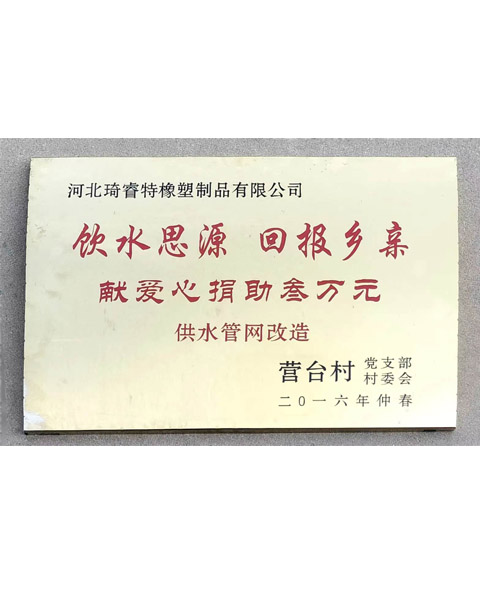rigid pipe coupling
Understanding Rigid Pipe Couplings An Essential Component in Piping Systems
Rigid pipe couplings are vital fittings in plumbing and industrial piping systems, playing a crucial role in connecting two sections of pipe securely. Their design allows for a stable and robust connection, which is essential in maintaining the integrity and efficiency of fluid transport. This article aims to delve into the significance, types, and applications of rigid pipe couplings.
What is a Rigid Pipe Coupling?
A rigid pipe coupling is a mechanical element used to join two lengths of pipe together. Unlike flexible couplings that allow for misalignment or movement, rigid couplings are designed to create a fixed connection. This rigidity is particularly important in applications where the pipes must remain aligned and stable, such as in systems dealing with high pressure or temperature fluctuations.
Types of Rigid Pipe Couplings
There are several types of rigid pipe couplings, each designed to meet specific requirements
1. Threaded Couplings These are commonly used in small-diameter piping systems. They feature male and female threads that enable easy connection and disconnection of pipes. Threaded couplings are often made from materials like brass or stainless steel for improved durability.
2. Welded Couplings For larger pipes, welded couplings are a popular choice. They provide a strong, permanent connection by welding the coupling to the pipe ends. This type is commonly used in industrial applications where high pressure and temperature resistance are necessary.
3. Flanged Couplings These couplings consist of two flanged ends that are bolted together. They allow for easy disassembly of piping systems for maintenance or inspection purposes, making them ideal for systems that require regular servicing.
rigid pipe coupling

4. Compression Couplings While not as common for purely rigid applications, compression couplings can be utilized in some contexts where a strong, yet slightly flexible connection is acceptable. They use a compressive force to create a secure seal.
Applications of Rigid Pipe Couplings
Rigid pipe couplings find applications in numerous industries, including
- Water Supply and Drainage In municipal and residential plumbing, rigid couplings ensure that pipes are securely connected, minimizing leaks and ensuring efficient water flow.
- Oil and Gas In the oil and gas sector, the durability and strength of welded couplings enable the safe transport of crude oil, natural gas, and other hazardous materials.
- Manufacturing Rigid couplings are employed in various manufacturing processes where pipes must transport liquids or gases under high pressure.
- HVAC Systems These couplings are also essential in heating, ventilation, and air conditioning (HVAC) systems, ensuring that ducts and piping maintain their alignment under varying temperatures and pressures.
Conclusion
In summary, rigid pipe couplings are an indispensable component of modern piping systems. Their ability to provide strong, stable, and secure connections makes them essential in a wide array of applications across many industries. Understanding the different types and their specific uses helps in selecting the proper coupling for any given project, ensuring system reliability and operational efficiency. As industries continue to evolve, the demand for durable and effective coupling solutions will only grow, underscoring the importance of this often-overlooked yet critical component in piping engineering.
-
Reliable Brake Line Solutions for Your VehicleNewsJun.05,2025
-
Quick Fix for Leaky Air Conditioning HosesNewsJun.05,2025
-
Powerful Sewer Jetting Solutions for Tough ClogsNewsJun.05,2025
-
Power Steering Hose Problems SolvedNewsJun.05,2025
-
Hose Protectors That Actually WorkNewsJun.05,2025
-
Essential Hose Connectors for Every HomeNewsJun.05,2025

